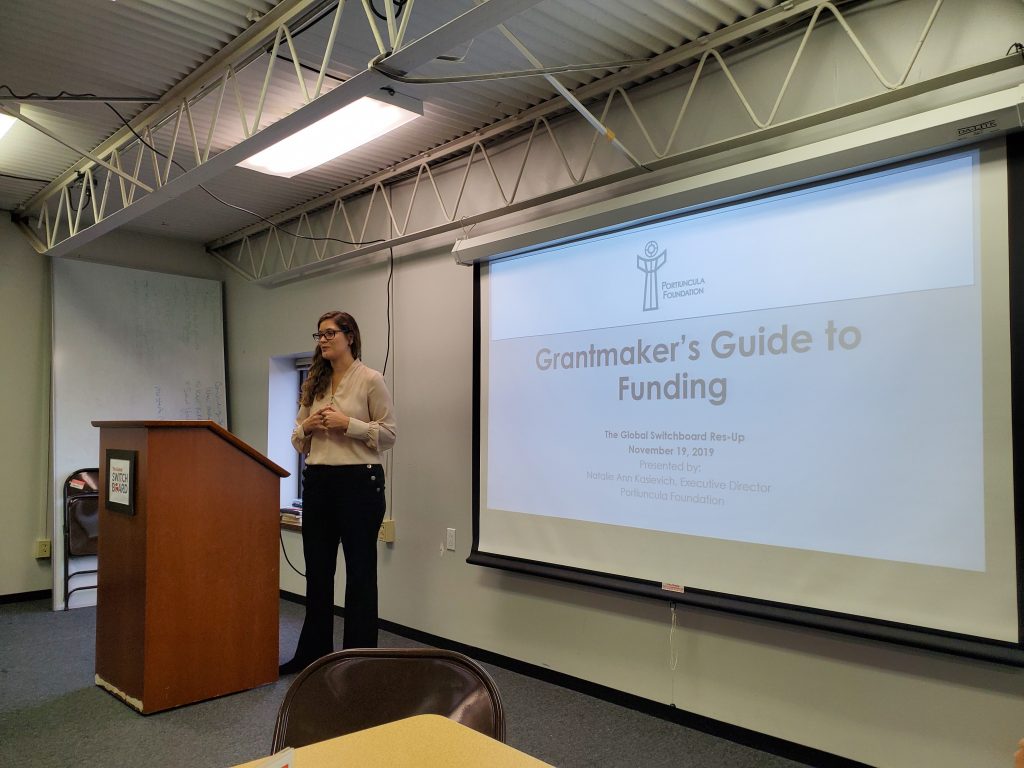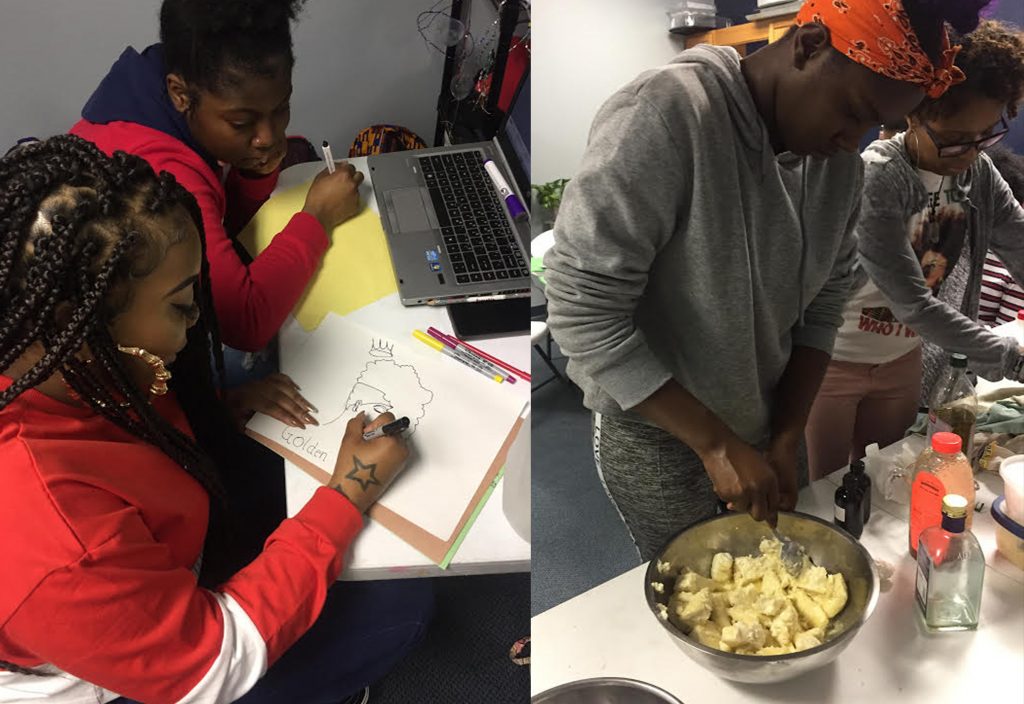Member Highlight: The Portiuncula Foundation
Leave a CommentThis month we are thrilled to highlight an organizational member of The Global Switchboard, the Portiuncula Foundation. Recently, the Executive Director of the Portiuncula Foundation, Natalie Kasievich, took the time to lead our office in a presentation about their organization, which covered everything from the correct pronunciation of their name (PORT-ZEE-OONK-OOO-LAH) to a grant-writing Q&A.
Here’s what we learned!
Organization and History
The Portiuncula Foundation is a grant-giving organization that’s advancing a broad vision of health and well-being through ‘little portions’ granted to organizations making a big impact. Their name, Portiuncula, is derived from the Italian word Porziuncula, meaning ‘little portion’, also the name of a tiny church dear to St. Francis and the early friars. The name represents the ‘Little Portion’ that God has given to the Sisters of St. Francis of the Neumann Communities, of which the foundation is a part, to help further their work in collaboration with others.
Founded in 2003, the Portiuncula Foundation supports efforts to advance health and well-being in the communities where the Sisters of St. Francis live and work. The foundation manages the restricted gifts and charitable funds formerly held at the Pittsburgh-based St. Francis Health Foundation, St. Francis Hospital of New Castle, and St. Francis Medical Center in a manner in keeping with the original intent of the donors. With their wishes in mind the Portiuncula Foundation strives to allocate these funds in accordance with these guiding principles:
- Promote programs that address root causes of poverty or focus on systemic change as well as empower the marginalized, especially women and children.
- Endorse initiatives that advance health, wellness, and education.
- Act as responsible and just stewards of the charitable fund in conformity with the ethical and social teachings of the Roman Catholic Church.
- Champion a broad vision of health that includes spiritual, emotional, physical, social, and economic wellbeing.
- Encourage collaborative efforts.
The Portiuncula Foundation provides grants up to $15,000 to not-for-profit 501(c)(3) organizations within Western Pennsylvania and in areas where the Sisters of St. Francis of the Neumann Communities minister. The Foundation awards grants to projects that align with their organizational principles, these often fall under the following focus categories: education, environment, health care, social services, care for asylum seekers, and care of the elderly, dying, and homeless.
Funding and Grant Process
In keeping with their namesake, Portiuncula seeks applicants who can make their ‘little portion’ go a long way by using any money awarded to reach specific, quantifiable goals. This means making intentful use of every dollar and only asking for what is necessary for the project when applying. Some of Natalie’s other grant application tips included clear concise language, thoughtful formatting, the inclusion of carefully-selected additional materials, and of course, plenty of research beforehand!
If you’re interested in applying for a Portiuncula grant, check out past awardees here to get a sense of the kind of projects they’re looking for, and learn more about the grant process and timeline on their website here.
Thank you Natalie for taking the time to teach us a little more about your organization and for giving us some insight on grant-writing from the perspective of a grantor!




